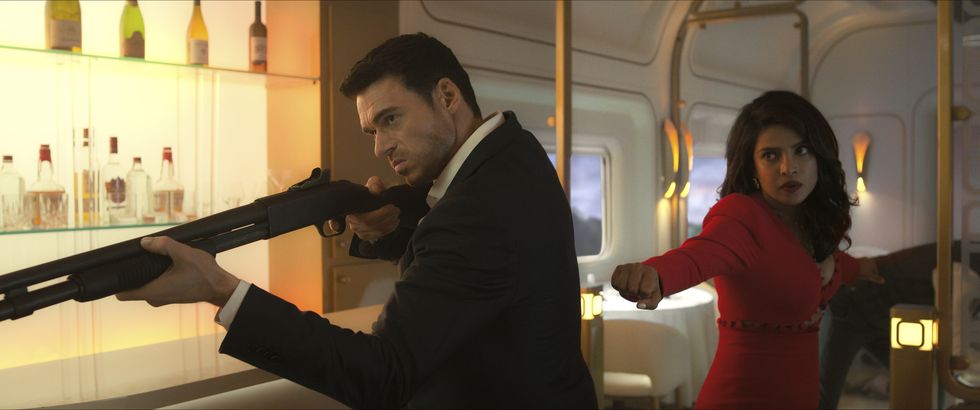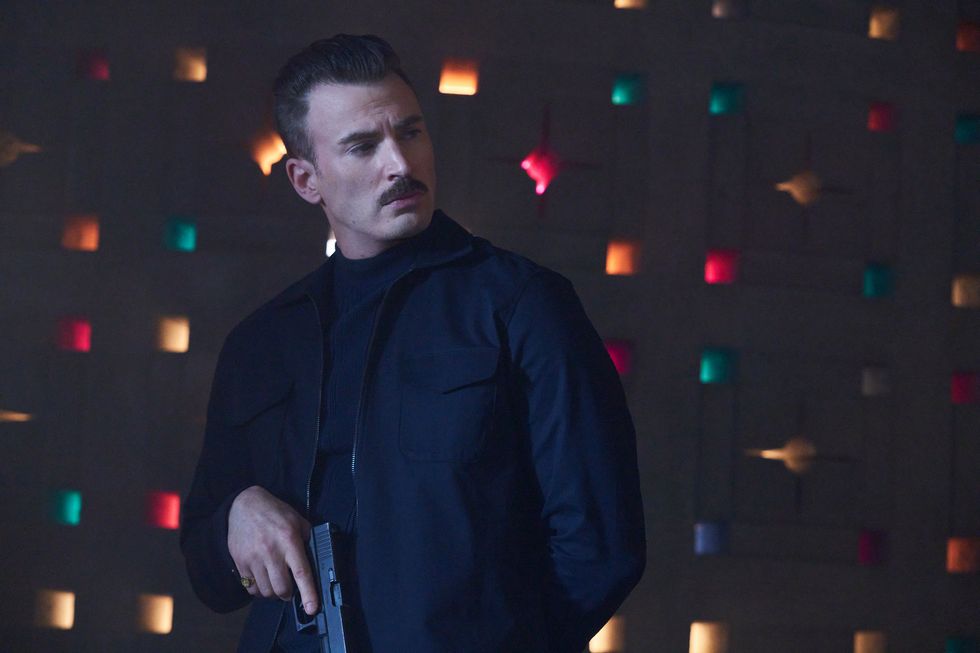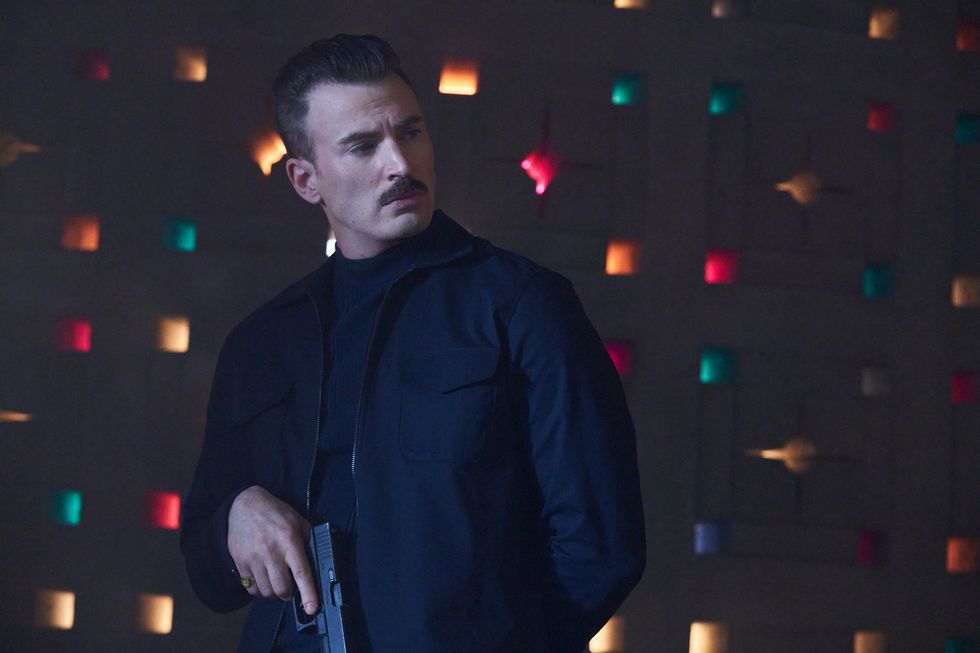Spies usually do everything they can to avoid detection. James Bond announces himself with his real name, which is a bit of a giveaway, but by and large they like to keep it on the down-low. Spy movies, though? They are absolutely everywhere, especially right now.
Everyone wants to make a blockbuster spy thriller — if not a Bond-killer then at least a Bond-filler to tide us over until yer man pops up again. Amazon’s very expensive new series Citadel, starring Richard Madden and Priyanka Chopra Jonas, is the latest in a long line of recent attempts to channel some 007 vibes.
But you might also recall Netflix’s The Gray Man (with Chris Evans, Ana de Armas and Ryan Gosling) and Apple TV+’s Ghosted (with Chris Evans, Ana de Armas and not Ryan Gosling). Then there’s Jason Statham’s honkingly entitled Operation Fortune: Ruse de Guerre, which despite being directed by Guy Ritchie, only got an Amazon Prime release in the UK.
The thing is, spy movies are hard to pull off. The Gray Man, Ghosted and Citadel are proof of that. The first two were leaden and strangely airless; Citadel’s reviews have so far veered between ambivalent and disastrous.
And when you start looking at it, there aren’t that many great spy thrillers out there. Even the Bond films are probably about a fifth brilliant, two fifths enjoyable, two fifths fine. That final fifth? Absolute rot.
There are lots of great movies with spies in them, though. That’s a crucial difference. Making a spy movie means slotting into what’s become quite a narrow, ironically unadventurous genre. What Apple and Amazon have tried to do is load up on stars and bolt on some Marvel guys to make their movies feel like the blockbusters they hope to be.
Madden and Evans are Marvel alumni. The Russo brothers, who helmed Captain America: The Winter Soldier, Captain America: Civil War, Avengers: Infinity War and Avengers: Endgame were brought in for The Gray Man and Citadel, while Spider-Man writers Chris McKenna and Erik Sommers wrote on Ghosted.
Now, you can see the reasoning. These guys have made some of the biggest movies ever, so let’s get them to sprinkle some stardust on us. Plus, the streamers have access to analytics to guide their commissions and help make sure they don’t make stuff nobody wants to see. Given how much some of these things cost – Citadel clocks in at around $300 million for just six episodes, according to The Hollywood Reporter – that sounds sensible.
So why don’t these recent spy thrillers work? Two things, I think. If it’s hard to make a good spy thriller, it’s extremely hard to launch a massive movie without some absolutely rock-solid IP behind it. The calculus for a blockbuster used to be: stars plus easily legible plot multiplied by interesting new technical innovation. Now, it’s IP plus many, many, many stars plus well-known character or world, to the power of existing fanbase.
The conventional wisdom is that stars don’t open movies anymore – even Tom Cruise couldn’t do it with The Mummy reboot. But another Cruise vehicle, Mission: Impossible, does offer some guidance to future franchises.
Before Ghost Protocol it looked at what it had, and leant into its own unique qualities. Namely, Cruise and his Buster Keaton-style commitment to doing things for real. He actually jumped out of a plane! He actually hung onto a plane as it took off! He actually broke his ankle! The M:I gang expanded and started to look more like a motley Guardians of the Galaxy crew too. John Wick isn’t a spy franchise per se, but it takes a lot of the building blocks of the genre and lashes them to some absolutely extraordinary fight work.
Meanwhile, Amazon and Apple’s spy thrillers play by the old rules, but try to plaster some wisecracks over the top.
And then there’s those analytics. Ghosted director Dexter Fletcher told Alex Zane on the A Trip to the Movies podcast that making movies for streamers means making very different artistic choices because of the numbers which the studios have to hand.
“You can’t make a film for streaming the same way you make a theatrical. You can’t. There’s different metrics and there’s a different approach.” Fletcher talked about a long sequence he’d put at the opening of Ghosted, with de Armas driving through mountains as a nod to the opening of the 1978 comedy-thriller Foul Play. Apple said no.
“They said you can’t, because if it goes on and nothing happens in the first 30 seconds, we know the data shows that people will just turn off. I’m like well, OK, I don’t want that. So I make that adjustment, I make that compromise.”
That compromise can kill a movie’s chance of being halfway decent. It matters even more with spy stories because the landing zone for a decent one is so incredibly small. We’re not making an earnest coming of age film set in rural France, where if you put in enough pregnant pauses you’ll probably get at least three stars.
There’s a particular sweet spot where the plotting is tricksy enough, the heroes sufficiently unique and engaging, and the action bits the right degree of wild. All the interesting spy movies of recent years have been meticulous, finely wrought things. Mission: Impossible – Fallout and Bridge of Spies might not look or move the same, but they worked because they were trying to make their own film, not bodge together bits of other people’s.
A rubbish spy film is no more frustrating and disappointing than most other rubbish films. But the really galling thing about this run of dud spy flicks? They’re being made with very low audience expectations in mind, as though their faults can be papered over with celebs, bullet cases and heavy marketing. But now, like a subpar spy in a sticky situation, their cover is blown.















